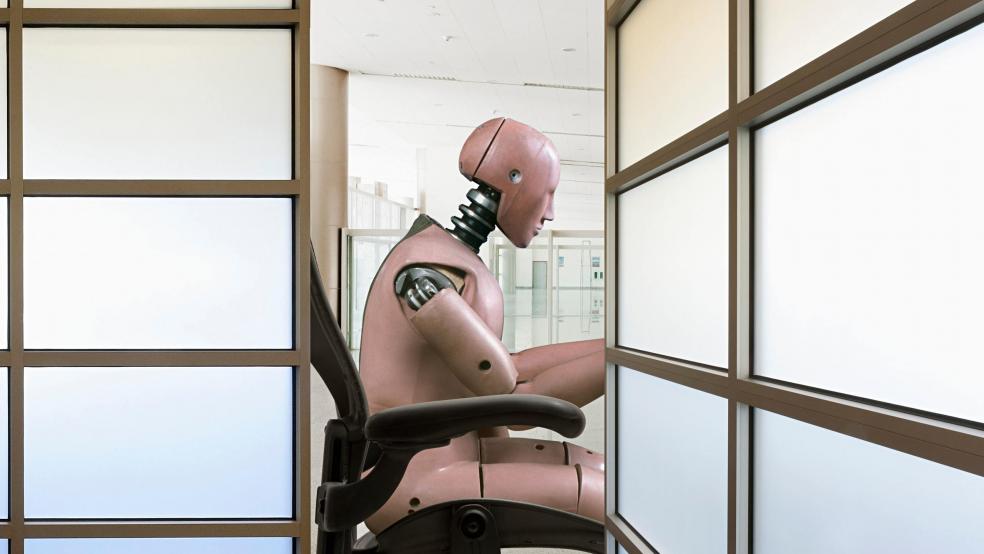Donald Trump tried to take credit for Sprint’s plan to create 5,000 jobs in the U.S. The plans were in place before the election, so there is some question about how much credit he should get. But Trump’s habit of claiming more credit than he deserves stands in sharp contrast to President Obama’s inability to communicate all of the good things that have happened during his presidency.
A report by Catherine Rampell in The Washington Post cites a poll on Obamacare: Astonishingly, about a third of respondents believe the share of Americans without health insurance has risen in the last five years. Even a sizable chunk of Clinton voters (21 percent) believes this. In fact, the uninsured rate has fallen precipitously, and now stands at an all-time low.”
Related: Economists, Blogs, and Donald Trump
Or, to cite another example, how many people know that Obama cut payroll taxes for workers in an attempt to stimulate the economy? Workers received a “Making Work Pay” tax cut of $400 ($800 for couples) that was distributed in small amounts in 2009 and 2010. Amazingly, it was intentionally underplayed based upon an idea from behavioral economics that the tax cut would stimulate the economy more if workers were unaware of it. There is some debate about how well the tax cut worked, but the point is that very few people were even aware that they received it.
The Obama administration’s lack of effective communication with the public was a big mistake. When Bill Clinton was president, it seemed like you could hardly turn on the TV without seeing someone vigorously and effectively defending his administration, and there was certainly no shortage of people defending George Bush. But, at least as I see it, the Obama administration did not benefit as much as it should have from effective spokespeople in the media (and where were members of the House and Senate for the past 8 years, they dropped the ball too).
There is a way in which the Obama administration communicated admirably, but unfortunately, it was mostly with policy wonks. What I will miss the most when Obama leaves office is the excellent work performed by his Council of Economic Advisers. The role of the CEA is to provide objective economic analysis that the president can use to make informed decisions.
For example, when George W. Bush was considering imposing a tariff on imported steel, the chair of the CEA at the time, Glenn Hubbard, warned him of the consequences for the US economy. Bush imposed the tariffs anyway (though they were rescinded two years later when other countries threatened to retaliate), but at least he did so with full knowledge of the potential harm it would do.
Related: Why the Public Has Stopped Paying Attention to Economists
President Obama appointed top-notch economists to the CEA, and the work they have done on a variety of issues is careful and academically rigorous (for example, since August there have been reports on Active Labor Market Policies: Theory And Evidence For What Works, Labor Market Monopsony: Trends, Consequences, and Policy Responses, and The Performance of Community Banks over Time).
One piece of research, a report on Occupational Licensing, changed my mind. I have always thought about occupational licensing as a way to overcome a market failure due to lack of information about the quality of, say, medical procedures. The idea is that since consumers lack the knowledge needed to evaluate the quality of the service they receive, licensing and professional groups can police members and enforce quality standards. This is
This is useful and serves the interest of consumers, but the report convinced me it has gone too far. In many cases, licensing thwarts competition by erecting barriers to entry with no corresponding benefit to consumers, and it would be helpful to reevaluate the need for licensing using the guidelines given in the report.
What we seem to be getting from the Trump administration, which has floated Larry Kudlow as head of the CEA – he has no formal training in economics – is a slate of appointments that will provide political cover for whatever the administration wants to do. I find that distressing. One of the most important roles of the CEA is to shut down bad ideas, but it looks as if it will be transformed into a cheerleading agency for whatever Trump proposes.
I understand that macroeconomics has not performed perfectly in recent years, but it would be a mistake to use the shortcomings as a reason to throw out economic analysis altogether. There is a substantial body of both theoretical and empirical analysis of policies such as tax cuts for the rich, the imposition of tariffs, infrastructure spending, shutting down immigration, and the other things Trump has talked about. Even with policies I disagree with, there are good and bad ways to put them into place. Ignoring what economists have learned would be a big mistake.
Even with policies I disagree with, there are good and bad ways to put them into place. Ignoring what economists have learned would be a big mistake.






